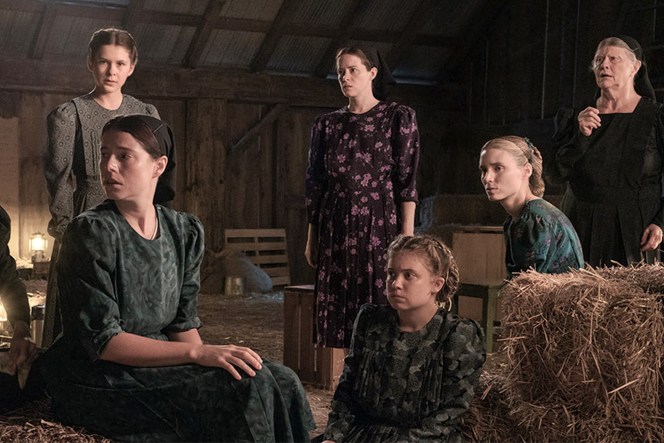Sarah Polley has carved her own path, first as an actress and now as a filmmaker, having piloted a highly personal documentary (Stories We Tell) and two frank observational pieces about marriage (Take This Waltz, Away from Her). But nothing she has done before could prepare an audience for Women Talking, which she has adapted from a novel by Miriam Toews. Polley takes a bold, formalist approach to this provocative chamber drama about a group of women who have been brutalized by the men of their isolated community. They agree that they must make a life-altering decision: to run away, to stay and fight, or to do nothing.
The women, of all ages, have been barred from getting an education, and make sound yet sometimes contradictory arguments for their choice. They even recruit a young man (Ben Whishaw) to take the minutes of their lengthy meeting in the hay loft of a barn on the property. He has proven his worth, and pines for a lasting relationship with Rooney Mara that he knows may not be possible. The women trust him to educate the boys who are coming up through their society to embrace different values than their fathers.
Polley has gathered an exceptional ensemble to bring this marathon talk session to life. The elders (Judith Ivey, Sheila McCarthy) offer their opinions while some of the younger women (especially Claire Foy and Jessie Buckley) exorcise so much pent-up anger that the idea of a consensus seems out of reach. Each cast member has at least one great showcase speech, yet there is nothing schematic about the way the film unfolds. Women Talking crackles with life and the excitement that comes from a story that is utterly unpredictable.
The unusual look of Women Talking, with its desaturated color (courtesy of cinematographer Luc Montpellier) and striking score (by cutting-edge Hildur Guðnadóttir, Oscar winner for The Joker) add to the feeling that you are watching a unique motion picture—a one-of-a-kind exploration of women’s roles that could be set in the past or the present. (The only clue to its time period comes when a political truck drives onto the property announcing the 2010 census.) One of its producers, Frances McDormand, takes on the small role of Scarface, so nicknamed for the scars she bears on her visage. Her mere presence signifies that this is an endeavor that bears weight.
Much has been said about the year’s best films not attracting the audiences they deserve. Women Talking is not what one would call a crowd-pleaser, but it is an extraordinary piece of work that is well worth your time.








